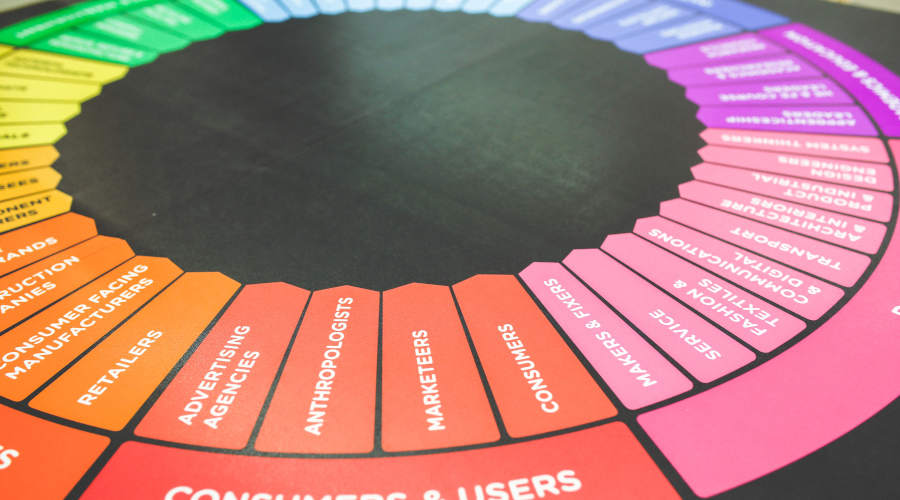So, you have a business and you feel like this is the perfect time to make a big move: You’re going global.
Now, you’re probably wondering how in the world are you going to make it happen. How is it possible to get discovered by people in other parts of the globe? Is that even possible for a small business like you?
Well, wonder no more as we have the solution you’ve been looking for all this time. You need to come up with an effective international SEO strategy for your website.
Summary
International SEO strategy helps you get your website to the top of Internet search results in whatever international market you are targeting.
Table of Contents
In this article, we’ll cover the basics of international SEO, its benefits to your business, and of course, some of the most helpful tips to get you started on your international SEO strategy. Let’s dive right in!
So, What’s the Deal with International SEO?
Also known as global SEO, international SEO is the process of letting search engines like Google know that you’re targeting specific countries, what these countries are, and what languages you use to attract them.
The purpose of international SEO is to give search engines the green light once they see that your website has appropriate content for two types of searchers. These are searchers who are either based in a specific country or those who are browsing for your offerings using a specific language.
It involves using localization elements such as language targeting, hreflang tags, and designated URL structures to target content to your market around the world.
International SEO is basically what digital marketers and businesses that plan to sell their products or services overseas use to appear in the search engine results pages (SERPs) so that foreign consumers can find them easily.
In order for your business to succeed internationally, you need to consider international SEO. That means learning and managing international SEO for yourself or hiring regional SEO experts. To find potential SEO partners, search for SEO companies in Europe or Asia or Latin America.

International SEO is the process of making your web properties discoverable via search engines to your target customers around the world.
How Can My Business Benefit from Having an International SEO Strategy?
Again, the purpose of international SEO is to ensure your website is seen by people in other countries apart from yours.
In other words, it’s all about improving your website visibility and connecting with your target audience globally. This will help establish your business as a worldwide brand. You can build a bigger and stronger customer base, and eventually, bring in more conversions. When done right, you’ll find your business slowly but surely making its way to the top.
With an effective global SEO strategy, you’ll be able to discover the parts of your content that’s working properly, as well as those that don’t. You’ll be able to recognize the factors that stop your prospects from buying, and those that keep them coming back for more.

Being able to do international SEO research will help you get marketing insights into the way your potential customers think. SEO research is market research.
Now you know why creating a set of international SEO strategies should be a vital part of your marketing efforts if your goal is to become a popular brand globally. Some of your competitors might already be ahead of the game, so it’s best to start as soon as you can to keep up and ultimately beat them.
And, if none of them are optimizing their content for certain countries or languages yet, consider yourself extremely lucky. Take advantage of the situation to drive more organic traffic by tailoring your content to your target countries.
Get Your Content in Front of International Audiences
Talk with IVANNOVATION today about how to translate your content in a way that appeals to your target customers in their own language.
Talk With a Localization Specialist
International SEO Best Practices
Keep in mind that a global SEO strategy that’s successful in one market doesn’t necessarily mean that it will work for another due to differences in languages and cultures. Because of this, strong international SEO strategies usually require adaptation for various countries or regions.
If you want to be successful in international SEO, which we’re sure you do, you gotta cater to the cultural differences in whatever country or language you’re targeting. Don’t just translate your website, LOCALIZE it.
Localizing involves many elements such as changing units of measure, reordering how lists are displayed, providing prices in local currencies, providing locally popular payment options, and more. All your answers to any questions they might have should be written in their own language.
While all of these might sound too much for you to handle, especially if you have zero knowledge of SEO, you should know that the results will be extraordinary. With careful planning, the right technology support, and a team of SEO specialists behind you, you’ll be seamlessly incorporating localization into your global growth strategy.
So, what will it take to create a powerful international SEO strategy? Allow us to walk you through.
Step 1: Define Your Market Approach
It’s important to remember that no two international SEO strategies are the same. The strategy you use will depend on your business and target market.
Let’s say you offer the same products globally to audiences that speak various languages. What you should be doing is to focus on a language-based segmentation approach. This means optimizing content on your website so that it’s the same in each language and hosted in subfolders on one domain.
On the other hand, if you’re selling different products in different national markets, or your business operates under a different brand name for every country, then you’ll need to set up separate websites, all having their own global SEO approaches.
Learn How to Localize a Website the Right Way
How to Build a Multilingual Website? Here Are the First Steps [Complete Guide]
Step 2: Research Your Market
Once you have your market approach all figured out, your next move is to define which audiences are likely interested in your products or services. Find out what’s important to them, their pain points, and their buying habits.
Step 3: Spy on Your Competition
Study your competitors and gauge their performance in terms of international SEO and content marketing. Take a page from their playbook. Identify their weaknesses so you’ll know what to avoid when crafting your marketing plan.

It’s ok to spy on competitors. Whatever they are publishing publicly on the Internet is fair game for you to learn from.
Step 4: Choose the Right Domain Name(s)
If there’s a need to build dedicated sites for different countries, it’s crucial to pick your domains wisely. Hiring an agency that has years of experience in the local market, as well as native-speaking specialists, should be your best bet.
Your brand name and domain name must elicit positive feelings and associations from consumers. If your domain name contains more than one word, see to it that they blend well and that they can’t be misconceived to form new words.
Incorrect domain names not only lead to misinterpretations, but they can also result in mistrust and embarrassment on your part.
What Is the Best URL Structure for a Multilingual Website?
Download our comprehensive ebook today. Click the button below.
Get the Free eBook
Step 5: Use Dedicated URLs for Localized Content Variants
Considering that there’s a number of URL structures you can use to target particular countries, using a dedicated URL for each local content page will steer clear of any confusion.
Since every situation requires a suitable URL structure, it takes a decent amount of time and careful deliberation to pick the best URL structure that promotes international SEO.
For a comprehensive guide on choosing the perfect URL structure for your strategy, you might want to give this blog post a read.
Step 6: Use the hreflang Tag Attribute
Hreflang refers to an HTML attribute designed to specify the language and geographical targeting of a webpage.
If you have a page that offers different versions with different languages, using this tag will help search engines serve the correct version to their users, as it notifies them about these variations.
You can include the hreflang attribute either in the head section of your HTML, your XML sitemap markup, or your HTTP headers.

Make sure that your website is set up properly on the back end to accommodate multiple languages and to signal appropriate language and region targeting to search engines.
Step 7: Pick the Right Keywords for Your Target Countries
As with traditional and local SEO, keywords play a major role in building a strong international SEO strategy.
However, translating your keywords isn’t enough here. What you’ll also need to do is to transcreate them.
Dealing with your keywords on a case-to-case basis is crucial. Some keywords may be hard to transcreate, while some won’t really benefit from the process. Other international industries may use English terms even if English isn’t their official language, which is why it makes zero sense to translate keywords.
After researching or transcreating your keywords, check how many people are actually searching for them. You can use tools like Google Keyword Planner to learn their monthly search volumes in relevant markets. Then, incorporate the best keywords into your global SEO strategy.
Your Friends on Twitter Probably Need to Read This Article…
Click here to share on Twitter>>
Tweet
Click here to follow IVANNOVATION on Twitter and be first to learn about our new content>> Follow @ivannovation
Step 8: Focus Your Content on Local Cultures
All the content you include in your dedicated country pages should always be relevant for the local audience.
Say you’re targeting consumers in India, but most of the blogs you write about have nothing to do with their trends or news. For sure, they won’t stay long on your website, nor will they come back anytime soon.

Unless you learn what your target customers like, dislike, need, enjoy, etc. you can’t expect to know how to reach them with your marketing. Every good marketing campaign starts with an effort to understand.
Cater to your audiences and keep them engaged by creating localized content. Provide targeted content for each country, and make sure they will appeal to your local consumers.
You might also want to consult with someone based in the target country to help you create compelling copy and design a landing page for native audience. Or perhaps, team up locally-based content creators and industry experts to make the job much easier for you.
Ready to Create Your International SEO Strategy?
International SEO can work wonders to your business, as long as it’s done properly. The tips mentioned about will ensure you stay on the right path.
Then again, you can always hire a digital agency firm like Digital Resource to get the job done, considering that global SEO can get incredibly tricky. It might cost you more money, but you’ll be in awe when you see the amazing results once your website is fully optimized.
Get free localization tips straight to your inbox!
- Get tips on how to translate your website, marketing materials!
- Get actionable advice to help you succeed with localization.
- Be the first to access free language and management tools.



